Anxiety and Dry Mouth

Key Takeaways
| Keyword | Information |
|---|---|
| Anxiety-related dry mouth | Stress affects oral health |
| Sympathetic nervous system | Fight-or-flight response |
| Saliva production | Reduced in anxiety |
| Management tactics | Stress relief and oral hydration |
| Professional help | Seek it if symptoms persist |
How Stress Hijacks the Mouth
Do you ever find yourself inexplicably parched while feeling worried or on edge? No matter how much water you drink, it seems impossible to quench your sudden thirst? This frustrating phenomenon has a name - anxiety-related dry mouth. And over a third of adults in the UK deal with this stealthy link between stress and oral health.
While not widely discussed, the guts have a strong connection to the mouth. When anxiety revs up the “fight-or-flight” stress response, vital resources get diverted away from digesting, hydrating, and saliva production. The end result? Chapped lips, sore throat, rampant cavities, and constant dry mouth.
Anxiety
- Triggers body's response
Fight-or-Flight Response
- Leads to changes
- Digestion
- Hydration
- Saliva Production
- Chapped Lips
- Sore Throat
- Rampant Cavities
- Constant Dry Mouth
Understanding exactly how anxiety hampers healthy saliva flow equips us to better manage symptoms. We can also become savvier advocates for comprehensive treatment plans addressing oral health alongside mental health. This article reveals the science behind anxious dry mouth and practical ways to ease distress – plus when to enlist professional support.

Stress Hormones and Their Effects
To grasp the dry mouth/anxiety relationship, it helps to understand what unfolds internally when worrying thoughts take hold.
| Aspect of Anxiety and Oral Health | Description |
|---|---|
| Relationship between Dry Mouth and Anxiety | Anxiety triggers the sympathetic nervous system, leading to the release of stress hormones like adrenaline and cortisol. These chemicals prepare the body for "fight-or-flight" responses, but anxiety can cause their excessive activation without genuine threats, disrupting the body's equilibrium. |
| Effects on the Body in Anxiety | Energy is redirected to large skeletal muscles. - Digestion and tissue repair processes are suppressed. - Heart rate increases. - Breathing becomes shallow and rapid. |
| Impact on Oral Health | Anxiety can lead to excessive activation of the sympathetic nervous system, resulting in insufficient saliva production. This reduced saliva flow allows unchecked bacterial growth, increasing the risk of decay. It also makes the mouth more vulnerable to tissue injury, infection, and complications with dentures or braces. |
| Oral Health Consequences of Anxiety | Anxiety can contribute to more cavities, gum inflammation, and other oral health issues, even with proper oral hygiene habits. Stress reduces moisture in the mouth, exacerbating these problems. |
Quieting Anxiety’s Oral Health Sabotage
Managing anxious dry mouth involves two parallel tracks – calming fight-or-flight reactions and directly addressing compromised saliva flow. Stress relief and oral hydrating tactics work synergistically to ease discomfort.
Tactics to lower anxiety levels generally center on activating the parasympathetic nervous system through relaxation-promoting activities:
- Diaphragmatic breathing – Inhale slowly, directing air deep into the belly using the diaphragm muscle. Exhale gently through pursed lips. Use 5-10 minutes daily. Apps provide guidance.
- Meditation and visualization – Release mind chatter by sitting quietly while focusing on imagery or mantra repetition. Start with 5-minute sessions, extending with practice.
- Yoga – Try beginner-level classes or follow Youtube exercise videos for anxiety-relieving sequences and poses to learn at home.
- Nature immersion – Walk through green spaces, sit near moving water, or tend to plants. Nature’s landscapes induce relaxation.

Incorporating regular movement and sleep hygiene also helps prevent stress accumulation:
- Exercise – Engage in 30-60 minutes of heart-pumping physical activity per day. Releases endorphins while improving stress resilience.
- Prioritize sleep – Strive for 7-9 hours nightly. Anxiety often corresponds to fatigue. Catching up on sleep helps reset.
To directly tackle oral dryness, use combination approaches:
- Sip cool water frequently
- Chew gum or suck sugar-free hard candy to stimulate saliva
- Use moisturising dry mouth sprays or gels and rinses to coat oral tissues
- Humidify living spaces to prevent airway drying
- Avoid alcohol/tobacco – Both inherently dry the mouth
Note also if any medications list dry mouth or constipation as potential side effects. Bring up alternatives with your physician or psychiatrist. Discuss underlying anxiety as well for adjustments to dosage or therapy referrals.

Getting Professional Help – Don’t Delay
Self-care measures greatly improve dry mouth and unease day-to-day. However, if unable to pinpoint obvious stress triggers or symptoms persist despite your best efforts, seeking professional support is vital for resolving the root drivers.
Living with frequent worry and oral discomfort significantly erodes one’s quality of life. The combination also chips away at physical health if unchecked. Make an appointment with your primary care provider right away if you experience any of the following:
- Anxiety lasting over 6 months
- Panic attacks arising without an identifiable cause
- Feeling constantly on edge and fatigued
- Ongoing struggles to cope with daily responsibilities
- Symptoms interfering with personal relationships
- Difficulty sleeping due to restlessness and worry
- Intrusive thoughts or obsessional tendencies
- Avoiding social situations due to self-consciousness over dry mouth
Anxiety doesn’t get better on its own for most people. Consulting a professional for evaluation is essential for pinpointing underlying factors and developing a tailored treatment plan. Depending on personal factors, recommended options may include therapy modalities, anti-anxiety medications, stress management classes, support groups, and other interventions.

A dentist should also examine your mouth for damage and can provide specialized products to boost moisture. For moderate to severe dry mouth issues, medications may be prescribed to stimulate saliva production. Identifying any nutritional or autoimmune components is also key.
Relief Starts by Reaching Out
-
Anxiety is Highly Treatable
- Anxiety, including its impact on physical health like oral dryness and dental issues, is highly treatable.
- Professional treatment can lead to substantial improvement, with 70-80% of individuals experiencing positive results.
-
Taking the First Step
- The critical first step is making an appointment and simply showing up to tell your story.
- Compassionate providers will listen without judgment and work with you to find tailored solutions.
- This step empowers you to stop "just managing" and start living with full health, both inside and out.
Don't hesitate to take that empowering step towards seeking help for anxiety and improving your well-being.

Sense Hero
Sense Hero mouth Spray UK: Quick Fix for Dryness, Vapers Tongue and Palate Cleansing
View full details

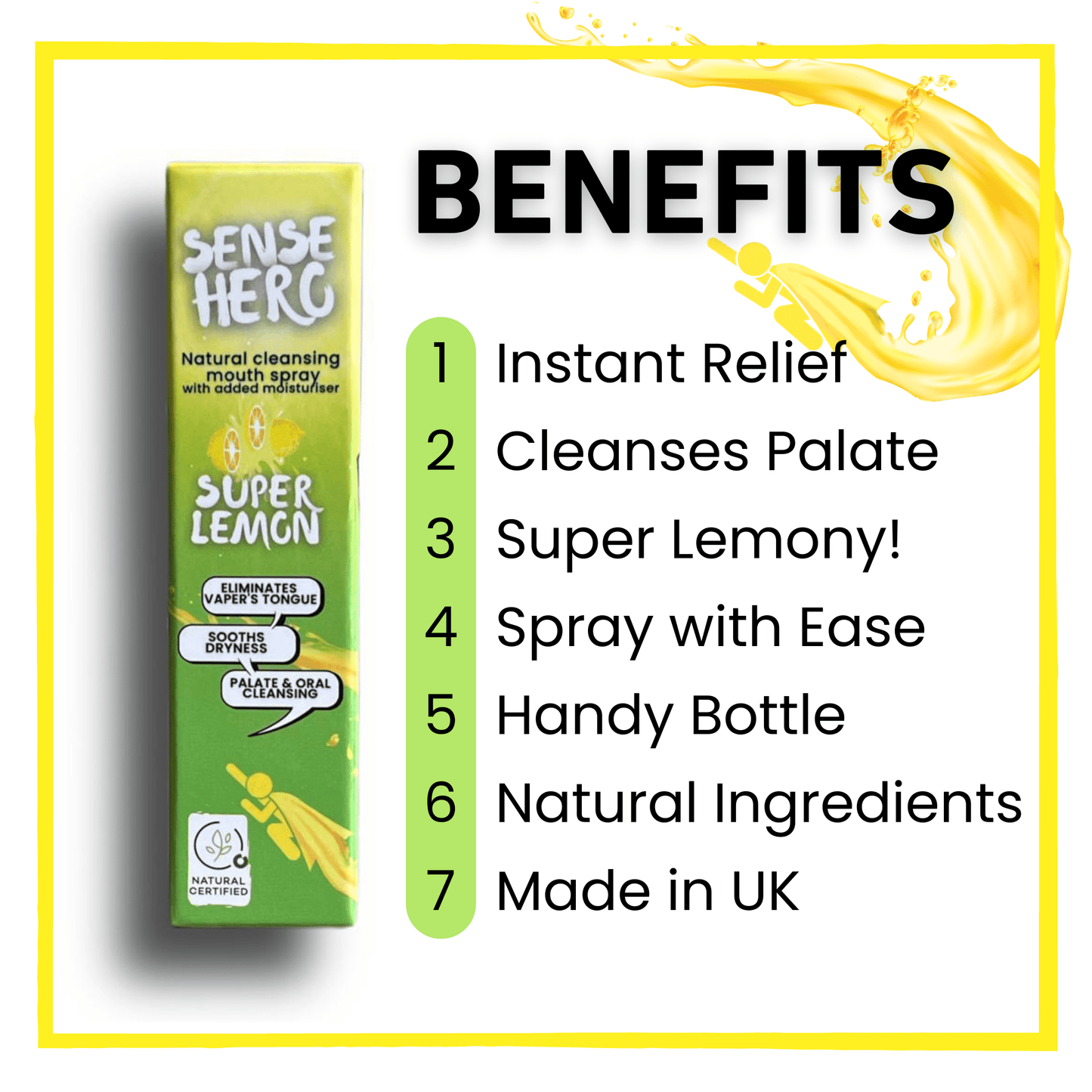

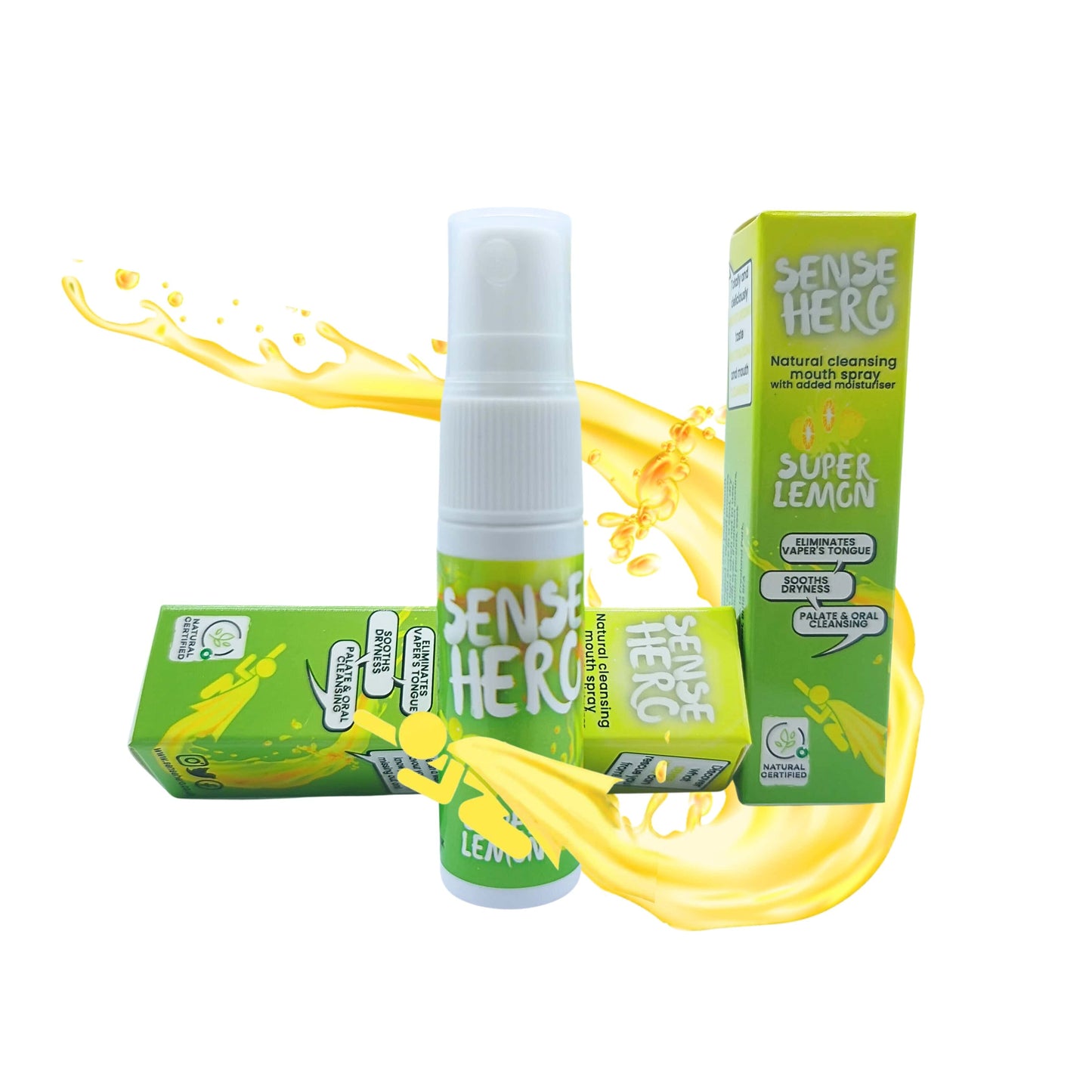
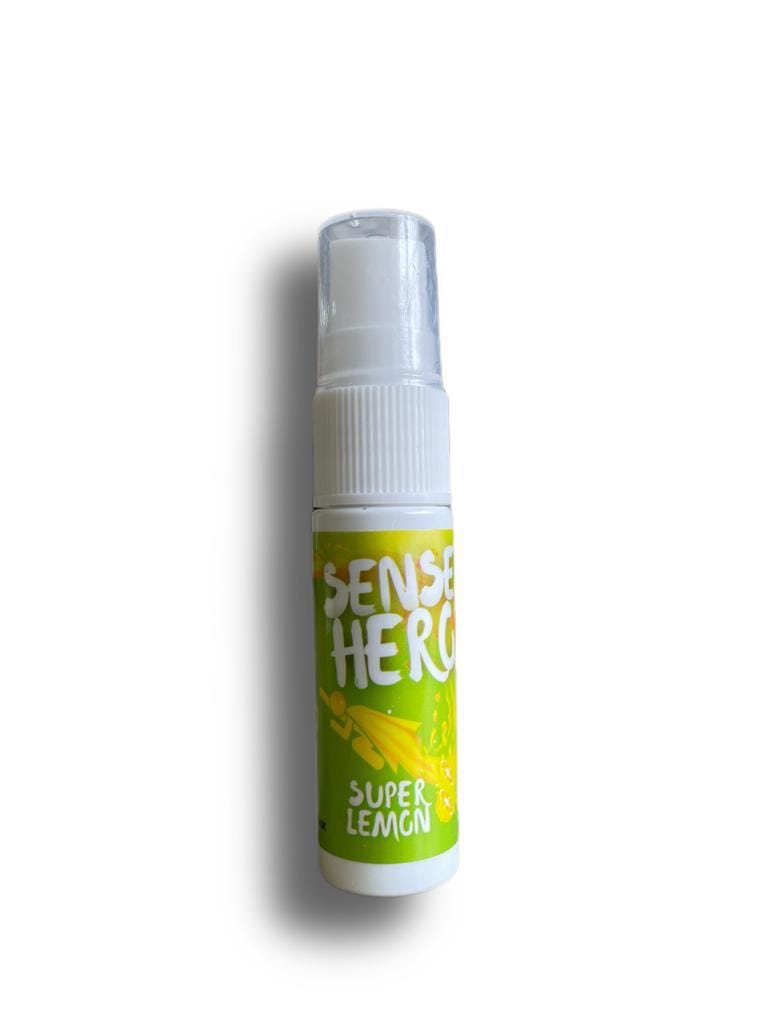
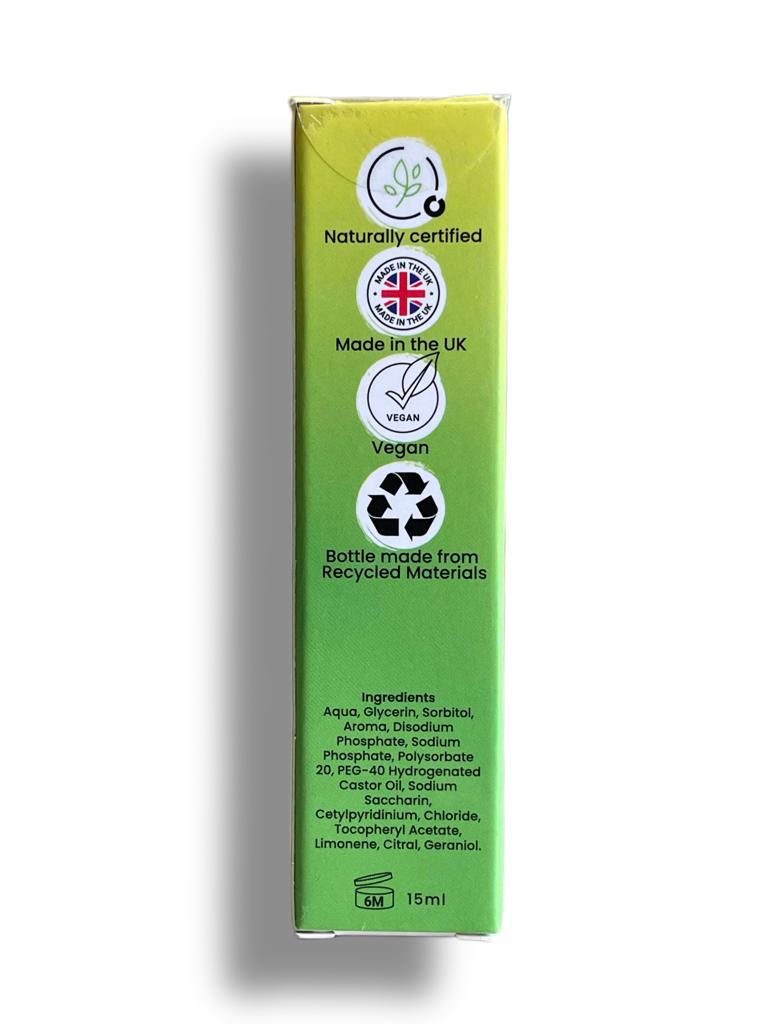

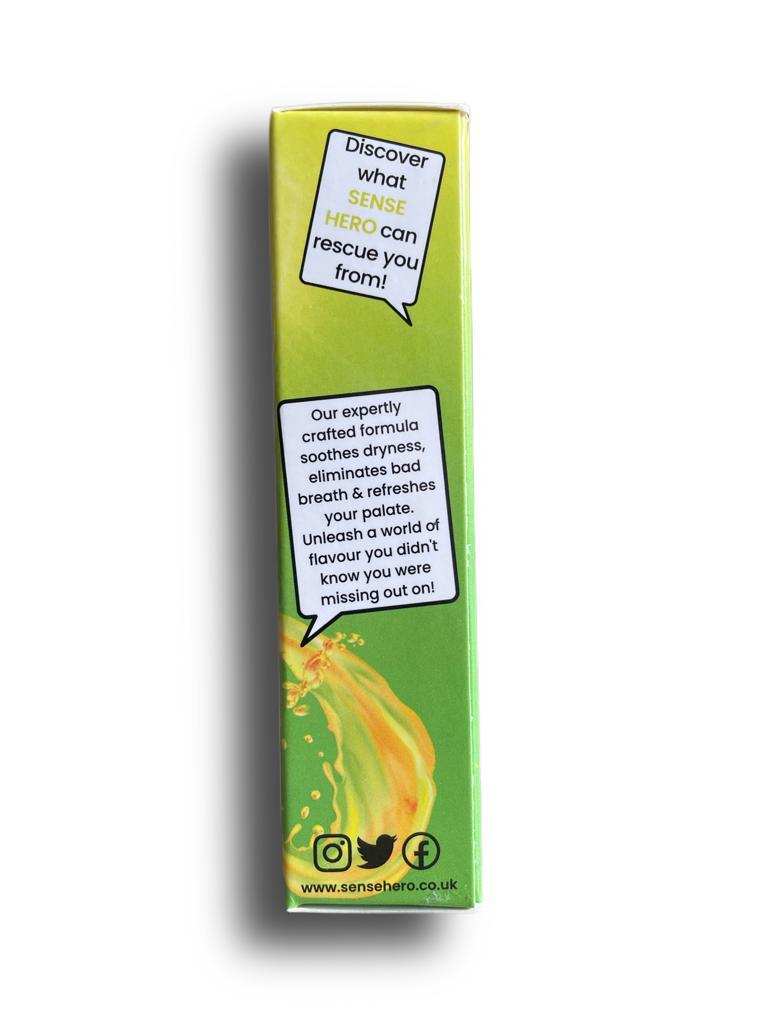
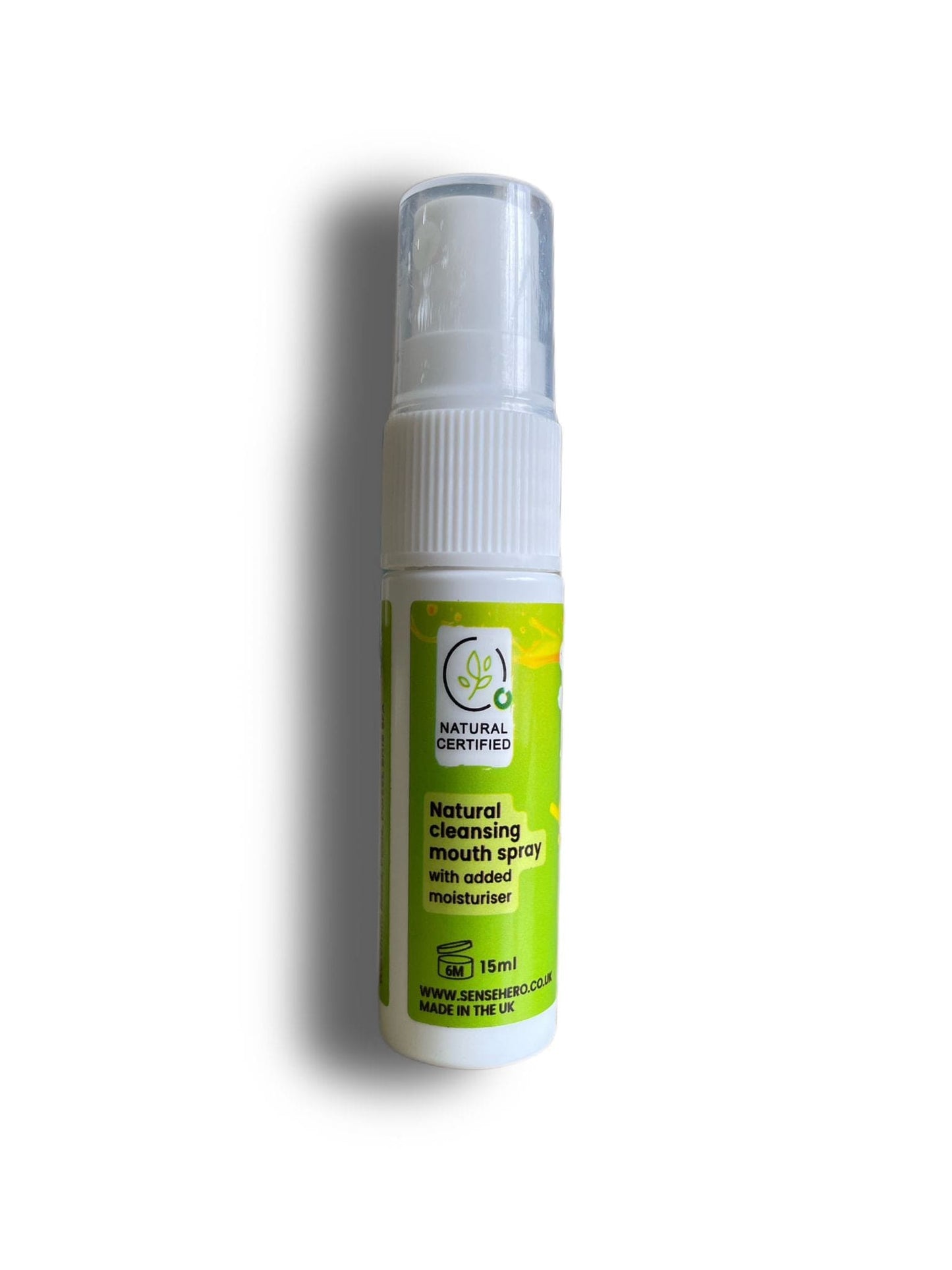


Sense Hero spray is not a medicinal product and is not intended to diagnose, treat, cure, or prevent any disease. Sense Hero Spray is designed for personal comfort.

